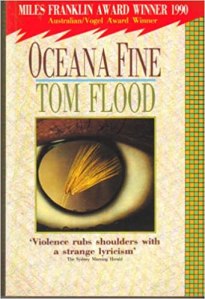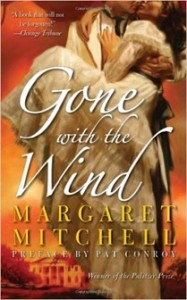On receiving the contract, I read it quickly and then read it again more slowly and then one more time, after which I decided that I needed help to make the correct decision.
I bounced the idea off members of Goodreads , which is a book readers web site, and I was very pleasantly surprised to hear from Stephen Leather one of my favourite authors. He was kind enough to comment on my request for advice.




Just four of the twenty Stephen Leather books that I have collected over the years.
Stephen advised me to retain an agent before signing with a publisher. So, the next thing was to find an agent willing to represent me. Funny how history repeats itself – I was unable to persuade any Australian or British agent to represent me, even though I had a publishing contract and their cut from my commission would be 15%. Many of the agents that I contacted stated that they were ‘full’ – and others failed to reply.
I still wanted the contract read by someone who was aware of the pitfalls in the publishing industry, so I joined the Australian Society of Authors and paid to have the contract checked by their legal department.
I received an eight-page report containing thirty-four suggestions. Some suggestions where easily fixed with the publisher, but for other suggestions the publisher would not budge.
Certain clauses were going to be ‘take it or leave it’ clauses.
If I rejected a certain clause the contract to publish would be withdrawn. In the end I accepted the contract, after all, I’d always wanted to be published by a professional publisher and this company had been in the business for a hundred and fifty years.
A strong consideration for me living in Australia was that a UK publisher would be able to market the book far better than I could in the UK & USA.
I had some of this publisher’s books on my bookshelf at home, which I’d bought some years ago.
At the request of the Company, I sent the publisher’s editor a copy of the manuscript and I am pleased to say she (another female editor) only requested five small changes to the manuscript. One of the changes was based on the perception of how a reader would accept my description of an urchin in 1805, which would be unacceptable today (un-PC). I explained that in 1805 it was acceptable, but in the end, I lost the argument and the word had to be changed. Overall, I was pleased that the editor that I picked to do the original editing was a very good choice.


Once they were happy with the manuscript, they wanted to change the book’s title and the book’s cover. It took me some time to get used to the new cover.
I must admit that it is more dramatic than the original cover. The title in the picture above shows ‘The’ Triangle Trade, but in the final production I managed to get rid of this word on the grounds that it made the title sound like a textbook. It was published as just ‘Triangle Trade’.
I was then asked for suggestions as to marketing the book.
My suggestion was to produce the book in paperback, and I specifically asked that it not be produced as a hardback.
I wanted it produced as cheaply as possible and suggested that the publisher place copies in airports & railway station book shops marketing it as an impulse buy for travellers.
I was an unknown author, but with the new cover and at the right price, I thought that it would make an attractive read for a traveller’s journey.
The publisher already had a databank of customers to whom they could do a mail or e-mail shot.
Sales staff around the country where given the new book’s title and told to start marketing.
I was given a small advance on sales and the book was produced – in HARDBACK with a sale price of £15.99! (about$28 AUD) I was sent six free books as the author.
I have five grandchildren so a copy of the book will go to each one on them on their eighteenth birthday, and I will keep one of course.
I complained that Triangle Trade should have been issued as a paperback and I was told that they had been in the publishing industry for over one hundred and fifty years, and that they knew what they were doing. . . . . .I had my doubts, because I spend a lot of time in second-hand book shops. New paperbacks in Australia are expensive and hardback novels are beyond many people. Hardly anyone would spend £16 (AUD $28) on a novel by an unknown author.
A year or so later the e-book version was issued at £4.99 (AUD $10.00), which is more expensive than the e-books of Stephen Leather, Lee Child, C. S Forster, Vince Flynn, Michael Connelly, and many others.
Overall the sales have been disappointing. I receive a report of sales every six months, which includes details of my commission. My commission has not yet paid back the small advance!
On a positive side the marketing by the sales person working in and around Merseyside (Liverpool & Birkenhead UK) did a very good job by getting me interviewed by Radio City of Liverpool, the local Merseyside radio station.
Pete Price, one of the radio stations presenters rang me and interviewed me over the phone. The interview went for about twenty minutes, but the highlighted interview link is a shorter version of about thirteen minutes.
The same salesperson also managed a full page spread in the Liverpool Echo on the ‘Book’ page, written by Laura Davis, the Executive Editor of ‘What’s On’, in the widest read newspaper on Merseyside.
As you know Triangle Trade (Ice King) is centred around Liverpool in 1804 to 1807 so the radio and newspaper link generated a lot of interest, but few overall sales, which I put down to price again.
If a reader of this blog is considering self-publishing and they are fortunate enough to be picked up by a regular publisher, be careful as to what you sign.
I signed away my own work (Ice King) for ten years in a cloud of euphoria, plus I have to offer any further books to the same publisher.
I sold a number of paperback editions of Ice King, (which I had printed in Sydney) and a lot more as an e-book via Smashwords as Ice King for $1.50 USD.
I found Smashwords easier to deal with than Amazon (US), and Smashwords pay quicker, and I am still waiting for Amazon to pay.


I have a writer friend in the USA who started her first book Far Away Home around the same time that I started Ice King.
She planned to write a sequel, but only if she sold 50,000 copies of Far Away Home.
Susan attended a seminar and was told that self-publishing authors can be more successful than traditional published authors, and the secret is to treat self-publishing as a business.
Over the years Susan has sold 202,000 e-books via Amazon and other outlets with an average price of US$0.99 and she also joined a system of being paid by the page – the reader only pays for the pages that they read.
To date Susan has ‘sold’ 20,817,564 pages and her books average 237 pages which equates to a further 84,388 books by this method.
It has not been easy for Susan because she has given away hundreds of copies to make sure that her books are ‘noticed’. Amazon Free Month and other such promotions to encourage ‘word of mouth’ advertising.
Her rating on Amazon are 4 stars out of 5 for Far Away Home and 4.5 stars out of 5 for Embrace the Wind.
Her books are also available in Australia & the UK for AUD $1.29 or £0.83
I should have followed Susan’s example!
If any reader of this blog is keen to write and actually finishes writing their book overcome your wish to be published in the traditional way, maintain control and do it yourself. Only reconsider this approach if you have an agent.
Stephen Leather being a prolific writer, has managed to do both, much of his work is published by a traditional publisher, and he has produced additional e-books, which he self publishes. Check Mr Leather’s link for a great deal of information on self publishing.
A few years ago I started a new novel, which is again set in Merseyside, with the main character living in Birkenhead in 1839 and I have managed to write about 35,000 words before I started blogging.
I found blogging easier than novel writing and just as enjoyable having produced about four hundred blogs, but I intend to finish the new novel which requires a lot more research.








